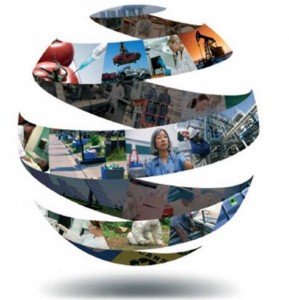Case Study
Energy efficiency programme by the Energy Commission (Suruhanjaya Tenaga)
Summary
The Malaysian Electricity Regulations 1994 (Amendment 2013) enable the Energy Commission to regulate electrical appliances according to their energy performance. Such appliances must meet the Minimum Energy Performance Standards (MEPS) and the efficiency ratings as prescribed in the Regulations. Test data on included appliances must come from third-party laboratories accredited by the Department of Standards Malaysia (DSM) or another accreditation body to the Asia Pacific Accreditation Cooperation (APAC) Mutual Recognition Arrangement (MRA).
Background
Suruhanjaya Tenaga (ST), the Energy Commission, is responsible for regulating the energy sector, specifically the electricity and piped gas supply industries, in Malaysia (Peninsular Malaysia and Sabah). The Energy Commission was formed under the Energy Commission Act 2001. The Minimum Energy Performance Standards (MEPS) label was introduced in 2013. Pursuant to Regulation 97(1), Electricity Regulations 1994, a Certificate of Approval (CoA) is mandatory for manufacturing, importing, displaying, selling or advertising electrical equipment. CoAs are required to ensure that electrical equipment in the market complies with established safety standards in order to reduce the risk of electrical accidents.
Strategy
The Commission provides recognition to a foreign and local conformity assessment body (CAB). The local conformity assessment body must be accredited by the accreditation authority, DSM. The foreign conformity assessment body must be recognised, registered or licensed by the relevant authority in the country in which the foreign conformity assessment body conducts business. All test reports, certificates, records or technical files are produced by a foreign and local conformity assessment body in accordance with the regulations set by the Commission. The test report needs to be accompanied with a confirmation letter from the Department of Standards Malaysia.
To encourage the purchase of energy efficient electrical appliances, e-rebates were granted to households that purchase energy efficient electrical appliances with high star ratings. This is in line with the government’s initiative to promote energy savings and efficiency that will indirectly support Malaysia in achieving its carbon reduction targets.
Results and impact
Under MEPS, domestic electrical appliances are given a star rating according to their energy efficiency category with five stars being the most efficient. This is especially useful for consumers as certain appliances, such as air-conditioners, have become must-haves in many middle-income homes. These, however, consume a lot of electricity which leads to higher bills. As such, using more energy efficient appliances will allow them to reduce the amount of energy consumed and their electricity bills.
Contact
Name: IAF and ILAC Secretaries
Organisation: Compiled by IAF and ILAC






